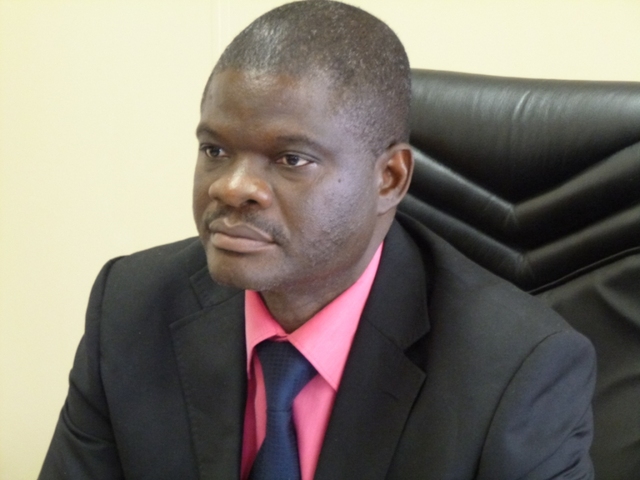20 pilot schools receive $6 million ICT equipment

Pamela Shumba, Senior Reporter
THE Ministry of Primary and Secondary Education’s target is to achieve a 100 percent deployment of Information Communication Technology (ICT) equipment to all the country’s schools within the next five years.
Speaking during an e-school model equipment handover ceremony at King George V1 Secondary School yesterday, Primary and Secondary Education Minister Professor Paul Mavima said the ministry will also ensure that educators in the country use ICT for teaching and learning purposes.
The $6 million ICT equipment was provided by the Republic of South Korea through the Unesco-Korean Funds in Trust (KFIT) project and the equipment benefited 20 pilot schools, including KG V1 and Nkulumane Primary School in Bulawayo.
“In line with the new curriculum, we’re doing everything within our power to enhance the deployment of ICTs in our schools. We aim to achieve 100 percent deployment of ICTs to our schools within the next five years.
“So it will be 100 percent electrification, 100 percent computerisation and 100 percent broadband coverage. We’ll also ensure staff development for teachers to enable them to use ICTs for teaching and learning purposes,” said Prof Mavima.
He said programming will be taught to learners from infant level in order to develop high fliers who are capable of competing globally.
“The potential of ICTs as an economic enabler is overarching and well documented. If Zimbabwe is to join the rest of the world into the 2 1st century, we have to accelerate ICT deployment at all levels of our society, particularly in the education sector. “The education sector plays an important role in equipping learners with ICT skills in order to unlock the economic enabling potential of ICTs. This is our aim with Unesco-KFIT e-school model,” said Prof Mavima.
Republic of South Korea Ambassador to Zimbabwe Cho Jaichel said Korea was committed to assisting Zimbabwe to come up with its own ICT embedded education policy.
“I’m pleased to have Zimbabwe one of the three beneficiary countries along with Rwanda and Mozambique.
“Korea has grown into the 11th largest economy and today it’s one of the strongest ICT power houses in the world. Experts say the massive investment for education served as the strongest driving force for Korea’s remarkable economic development. I believe Zimbabwe can also achieve economic development and restore its glorious fame as the breadbasket of Africa,” said Ambassador Jaichel.
He said the new equipment will go a long way in creating a better educational environment in the schools.
Unesco director for Southern Africa Professor Hubert Gijzen said the 20 pilot schools were engaged in a teacher training exercise on the use of ICTs.
“As a result of this activity, 400 school teachers from the pilot schools were trained on essential ICT skills for teachers.
“While the project continues, I propose that we develop strategies to ensure that technical support is continued in schools and expand ICT facilities to all schools including those in the remote areas,” said Prof Gijzen.
He said there was also a need to introduce renewable energy together with ICTs in education.
Each primary school received 15 laptops for students, one laptop for the teacher, one wireless router, one mobile laptop cart, one overhead projector and one projector screen.
The secondary schools received 15 laptops for students, one laptop for the teacher, one wireless router and one mobile laptop cart.
Among the 20 beneficiary schools are KG V1 and Kapota School for the Blind, which cater for the visually impaired and physically challenged pupils.
Kapota School received 15 desktop computers with APS UPS and three radio/audio systems while KGV1 received 15 laptops, one laptop cart, two television sets and one projector and screen.
The e-school model was developed under the ICT Transforming Education in Africa project under the theme “Transforming Zimbabwe into knowledge based society: strengthening quality education through integrating ICTs into teaching, learning, research and innovation. — @pamelashumba1










Comments